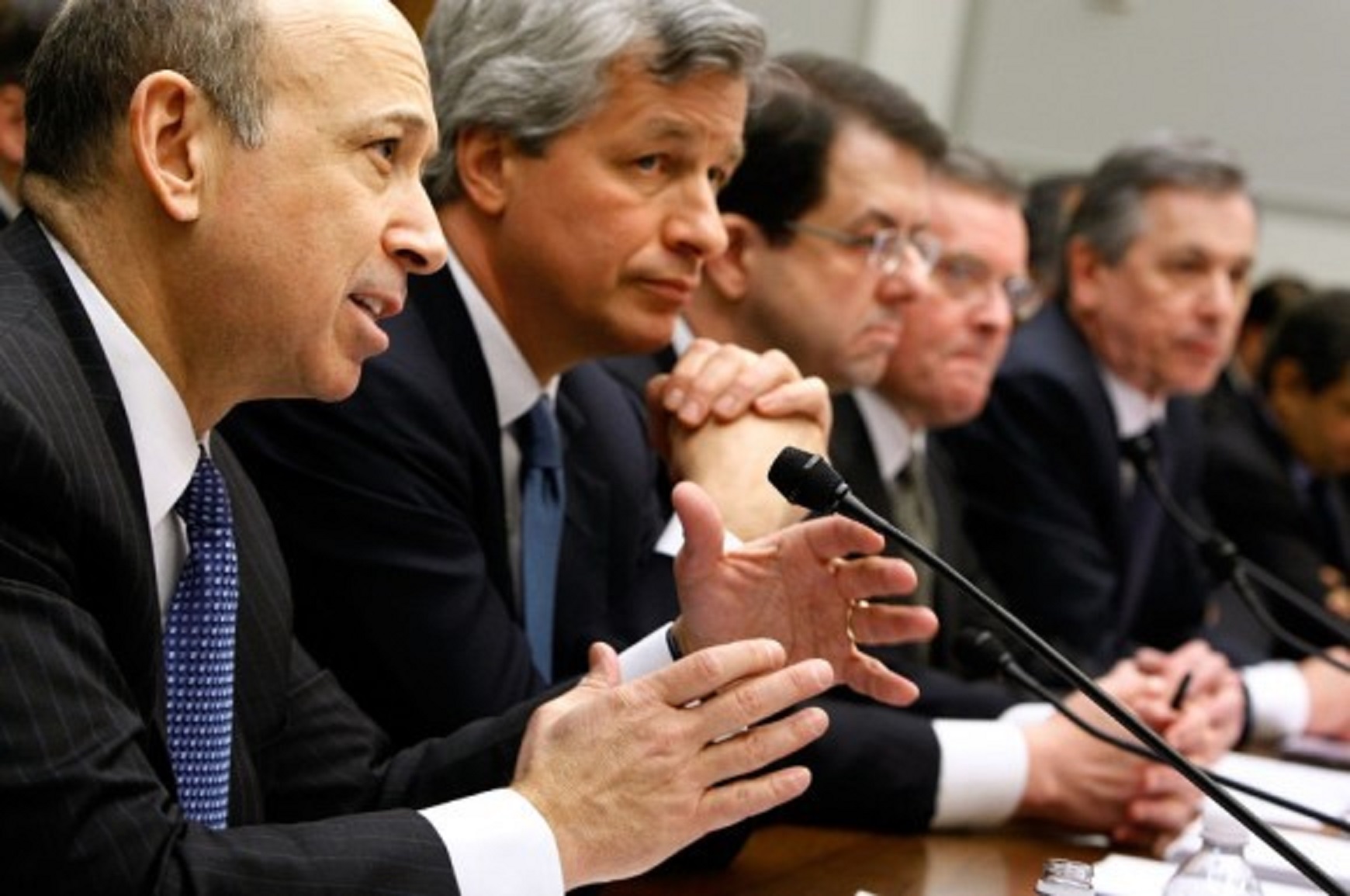It was, in some ways, every unsatisfied employee’s fantasy resignation —a vitriolic exit letter, delivered right under the boss’s nose to millions of readers around the world.
The situation? Greg Smith, executive director of Goldman Sachs, quit his job. In a scathing op ed that appeared in New York Times, Smith slammed his once-beloved investment bank for becoming (as he describes) a profit-hungry machine. The article instantly ignited impassioned responses from supporters, critics, and comedians around the world.
Regardless of what you may think of Goldman Sachs, it’s hard to ignore the emotions wrapped up in Smith’s letter. His exit strategy felt like a nasty, highly publicized break-up—one that forced strangers to take sides, and one that left both parties feeling bitter and betrayed.
Sound familiar?
Greg Smith’s op-ed could have actually been describing your average, dysfunctional romantic relationship.
As it turns out, what goes wrong in corporate relationships and what goes wrong in romantic relationships are surprisingly similar. Find out why Goldman Sachs may have inadvertently just given you some valuable love advice.
What went wrong?
There’s a reason people are often accused of “dating their job,” and it’s because in a way, everyone is. Like a relationship, a job requires significant mental and emotional energy, some degree of sacrifice, an enormous time commitment, and, arguably, the best years of your life. And as in a romantic relationship, no employee (or employer) wants to be undervalued, betrayed, or—dumped.
In some ways, there’s no better corporate parallel for the dating scene than an investment bank, which—quite literally—leads mergers. The art of investment banking requires figuring out the best way to bring two parties together in a way that will satisfy both. And successfully executing a merger requires building a great deal of trust and mutual respect.
Smith’s “break-up” with Goldman Sachs, then, can teach us what happens when a company loses sight of how to be—for lack of a better term—a good boyfriend.
-
There’s no such thing as a relationship without trust
Trust requires knowing that the person you are dealing with will do what is in your best interest—and act honorably.
In the context of investment banking, this means that Goldman Sachs would be expected to organize the most beneficial deals for its clients even if they didn’t end up reaping the highest return for the bank in the short-term. There is commercial (as well as ethical) rationale to this; one must have foresight and invest in relationships to assure their long-term profitability. Such behavior, of course, first requires a certain amount of sacrifice on the part of the bank. And, crucially—this kind of sacrifice should be a duty rather than a choice.
Smith, apparently, did not feel as though Goldman was living up to this standard.
In a romantic context, the importance of sacrifice is nothing new—people have been hammering this point home ever since the Bible. Sacrifice can often be the best test of someone’s faith in a long-term relationship.
In both business and love, individuals want to be with people they can trust. Without this level of trust, the client – or your date – will look elsewhere. As Smith stated:
“If clients don’t trust you they will eventually stop doing business with you. It doesn’t matter how smart you are.”
-
There’s no such thing as a short cut
Well, there is—but it may end up hurting you in the long run. One of Smith’s grievances with Goldman was that in his view, the company focused too much on its immediate goals rather its important goals.
Smith argued: “My proudest moments in life…have all come through hard work, with no shortcuts.”
Just as there is no short cut from the first date to the wedding date (at least, no short cut that works out), there is way to rush the development of a relationship that matters. The most lasting partnerships take years to curate. Solely focusing on immediate goals—like going out for a fancy dinner of buying a massive house—will hardly inspire enough emotion to make anyone enjoy either.
-
People before profit
In any form of relationship – professional, platonic, or romantic – few traits are more destructive than being self-centered. Smith’s parting advice to his ex-employers was the following:
“Make the client the focal point of your business again.”
While one may debate Goldman’s specific ethical quandaries and obligations, the general piece of advice is sound: losing sight of the needs of the client means losing sight of the reason an investment bank exists in the first place. By definition, nothing is more central to a relationship than the other individual.
The romantic translation of Smith’s parting words is simply: make the other person the focal point of your relationship. If you treat romantic partners as though they exist only to make you happy, don’t act surprised when they stop existing.
***
It is a worthwhile exercise to compare romantic relationships to corporate dynamics. After all, romantic relationships—which are notoriously complicated—provide a blueprint for how to understand most others.
And in the end, the success of any business rides on the success of its interpersonal relationships. A company is only as strong as the dynamics between company and client, employer and employee. The take-away message then, might simply be to court a client the same way you would court someone who is considering dating you. What qualities would draw someone to you for life? Sincerity, respect, and loyalty.
And, when it comes to romantic relationships, it’s important to recognize that your real partner will always be your best, most valued client.






